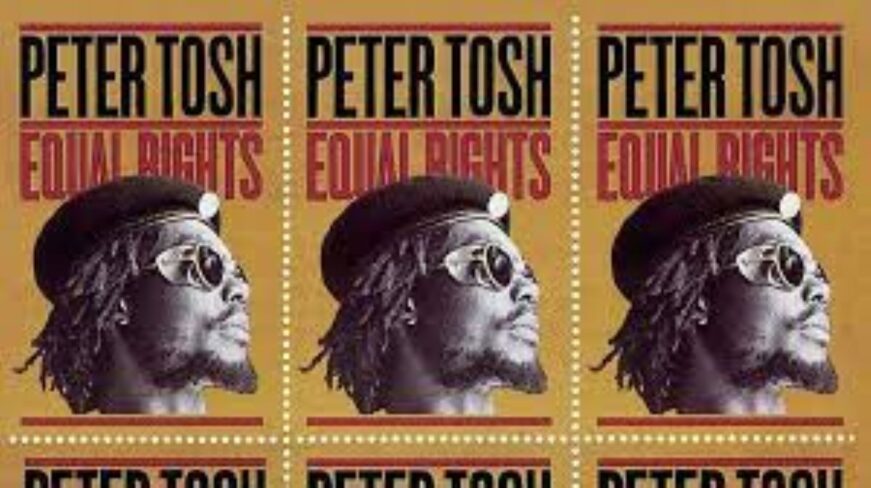It was scouring a pirated music stall – in the thick of a Delhi open air market, packed with screaming chaiwallahs, grubby smiling child beggars, and manic street food vendors – that I first clapped eyes on the Peter Tosh record ‘Equal Rights’.
It came packaged in a chunky white tape cassette box, and the cover featured Tosh channelling his inner-Che. A side profile, all black sunglasses, dreads tumbling from his Black Power beret.
I pulled out the rupees, bartered an ownership price and returned to the shaded oasis of a rooftop hostel room I was sharing with my girlfriend from University on our Indian summer adventure.
Firing it up on the Walkman, I was hooked on its bold messages of self-empowerment, justice, black power, and freedom for the soul. It was Tosh’s personal project, away from Bob and Bunny, at a time when the Wailers were hitting the global stage, becoming the reggae superstar icons they remain today.
The ‘Stepping Razor’ cut a little closer, when later on the tourist trail, bedding down in a guest house in the Kulu Valley, I was threatened at knife point to buy some local hashish.
The song was timely and instructive – to fix up and wise up, guard against thieves, and steer clear of the bad man – big words of advice for a wet-behind-the-ears nineteen-year-old kid.
I revisited ‘Equal Rights’ a decade later, after a long-life lesson wrestling with the black dog of depression, and it gave me the inspiration to go trekking solo in the Lake District, looking for my own Rock of Ages from ‘I am That I am’ – a strong metaphor for a human being who can remain constant, steady, and immovable.
I eventually found my Rock perched on the cliff tops of Pavey Ark overlooking the peaty black bog of Stickle Tarn, where the crows rule the skies, the air is thin, and I always get lost, ordinance free, in space and time.

